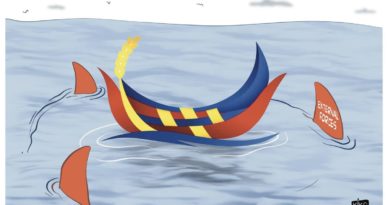OP-ED: Getting through by collaborating
The Straits Times says

Getting through by collaborating
This year’s May Day must seem like the worst in the living memory of most Singaporean workers. Independent Singapore has witnessed the oil shock in 1973 and subsequent economic downturns in 1985, 1998, 2001 to 2003, and 2009. Oil, financial contagion, terrorism and a punctured housing bubble were global and regional factors that precipitated assaults on the security and well-being of workers here. The Asian economic crisis at the end of the last century and the global Great Recession, which marked the conclusion of the first decade of this century, are sketched especially cruelly in Singaporean minds. However, even those tribulations could be dwarfed by what the International Monetary Fund projects as the steepest decline of global gross domestic product since the Great Depression in the 1930s, in the wake of the coronavirus pandemic. That historical benchmark is a sobering one.
Yet, Singapore has survived economically. One reason is the legacy of tripartism – the capacity for equitable collaboration among labour, capital and the state – and which has been a key competitive advantage for Singapore. It replaces the traditionally hostile relations among those entities envisaged by those elsewhere who believe that governments, acting necessarily in the interests of employers and big businesses, would squeeze employees into accepting subsistence as their economic fate because the alternative would be worse: unemployment and impoverishment.
.

.
Here, the National Trades Union Congress organised a seminar in 1969 which discussed tripartism as a central principle in Singapore’s industrial relations. Held against the backdrop of the impending threat of the British military withdrawal from Singapore, which would have exacted a tremendous vengeance on jobs, that seminar helped to renew the economy for the future. Turning adversity into opportunity, tripartism laid the foundations for Singapore’s emergence as a global economy. It was based on the willing participation of labour in a national enterprise in which the Government would ensure that capital would not thrive at the expense of workers.
That compact has held to this day. True, the pandemic belongs to a nature of threat qualitatively different from any threat in the past. A medical emergency has precipitated a response that can subvert the very economic system necessary to sustain society materially even after the pandemic has passed. As an open economy, Singapore is bearing the full brunt of the catastrophe. Trade and investment have been disrupted. Good companies could fall without help. Workers would lose out ultimately. These are existential times. There remains, however, the legacy of precipitous moments that have passed because collaboration won the day. May Day has renewed and celebrated the promise of that legacy.
Medico












